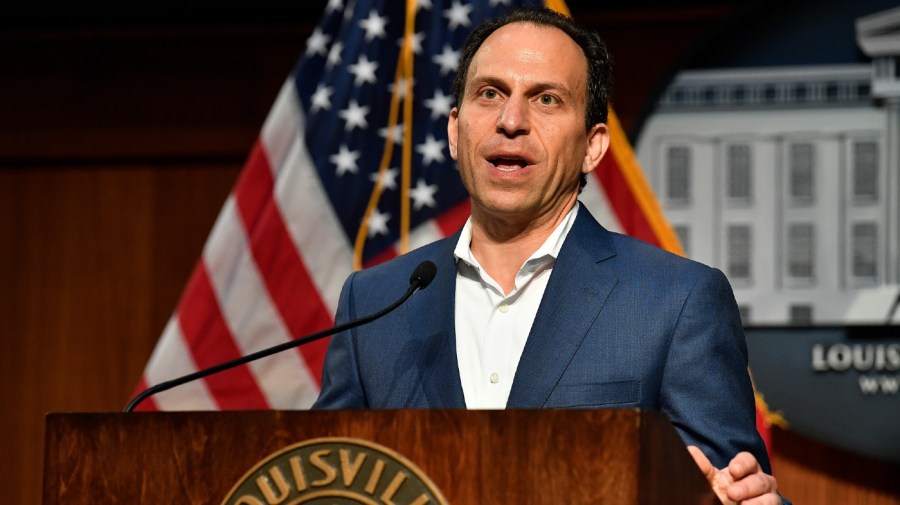Louisville dropping ‘sanctuary city’ policy

Louisville Mayor Craig Greenberg (D) announced on Tuesday that the Kentucky city will begin complying with the Trump administration’s 48-hour immigration detainer requests and, in exchange, the federal government will drop Louisville from its “sanctuary city” list.
Under the new directive, the mayor said, the Louisville Metro Department of Corrections (LMDC) will notify the Department of Homeland Security (DHS) at least 48 hours before an inmate with an immigration detainer is scheduled to be released from custody.
The federal government’s 48-hour detainer request is “standard practice” for Kentucky and was followed in Louisville before 2017, when the local policy changed, Greenberg said,. He added that LMDC currently provides DHS with approximately 5-12 hours’ notice before an inmate with an immigration detainer is released.
“I have been assured by the U.S. Department of Justice that, if we reinstate the 48-hour detainers for inmates who’ve been arrested for crimes, Louisville will be taken off the federal sanctuary city list,” Greenberg said in remarks on Tuesday.
“Accordingly, Metro Corrections will begin honoring 48-hour federal detainers as soon as practical because the stakes are too high,” he continued. “In turn, Louisville will no longer be considered a ‘sanctuary city’ by the federal government.”
Greenberg said he made the decision to comply with the federal government’s request after discussions “with leaders within our immigrant community,” who expressed concerns about remaining on the government’s “sanctuary city” list, which is comprised of localities the Trump administrations says impede enforcement of federal immigration policies.
“This change in designation is critical. Cities on the sanctuary city list right now are experiencing a terrifying increase in raids by ICE, including mass raids. Just look at what’s gone on in LA and other cities across the country,” he said, suggesting similar events could take place in Louisville if the mayor decided to resist the government.
Greenberg also said that, from his research, he expects the policy shift would apply to fewer than 100 inmates each year who are charged with crimes and are affected by immigration detainers.
By contrast, Greenberg said, there are tens of thousands of immigrant families in the city.
“We do not want to see highly coordinated and often violent federal enforcement action here, especially in workplaces, residential areas, schools, places of worship, parks, and other areas where law-abiding people gather. We do not want the National Guard occupying the streets of Louisville. I will not risk the safety of our broader immigrant community,” Greenberg said.
Greenberg said the city stood to lose “hundreds of millions of dollars in federal grants” with the “sanctuary city” designation. Those funds provide food, rental assistance and medical care to “our most vulnerable residents,” he said, adding, “I will not risk hurting them either.”
“I believe we will best protect our law-abiding immigrant community and our entire city by focusing the Trump Administration’s immigration enforcement actions on the few inmates in our jail who have been arrested for committing crimes and are subject to deportation,” Greenberg added.
Attorney General Pam Bondi praised Louisville for heeding the federal government’s demands.
“In a major victory for the Department of Justice, the city of Louisville is dropping its sanctuary city policies as a result of a strong written warning from my office,” Bondi wrote in a post on the social platform X on Tuesday.
“This should set an example to other cities. Instead of forcing us to sue you — which we will, without hesitation — follow the law, get rid of sanctuary policies, and work with us to fix the illegal immigration crisis.”